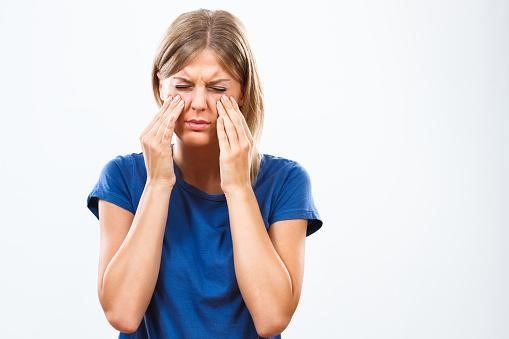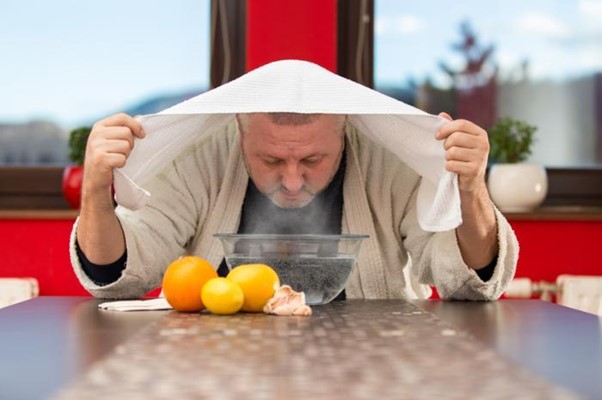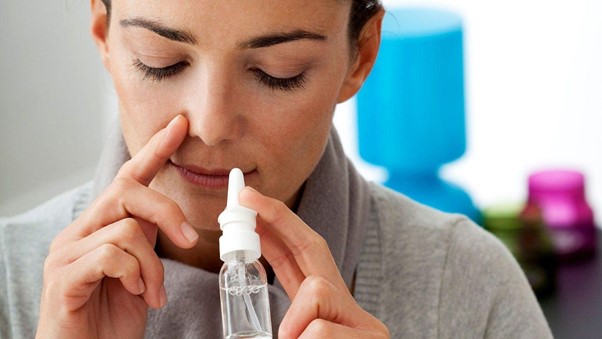
Sinusitis
Sinusitis is an inflammation of the sinuses, which are the air-filled cavities located in the face.
It is typically caused by viral or bacterial infections that cause a buildup of mucus, leading to congestion and blockage.
The most common type of sinusitis is known as acute sinusitis, which is typically a short-term infection lasting less than four weeks.
Chronic sinusitis, on the other hand, lasts more than eight weeks and may require long-term treatment.
Causes of Acute Sinusitis and Treatment Strategies
The most common cause of acute sinusitis is a viral infection, such as the common cold. Allergic rhinitis, or hay fever, is also a common cause of acute sinusitis.
In many cases, acute sinusitis can be treated with over-the-counter (OTC) medications and home remedies such as nasal washes.
If symptoms persist for more than 10 days despite treatment with OTC medications, a doctor may prescribe antibiotics to treat the bacterial infection causing the sinusitis.
Causes of Chronic Sinusitis and Treatment Strategies
The most common cause of chronic sinusitis is an allergic reaction, such as allergies to dust mites or mold.
Other causes include structural problems with the nasal cavity, fungal infections, and certain illnesses such as cystic fibrosis or HIV.
Treatments for chronic sinusitis may include a combination of medications, including antibiotics, nasal sprays or drops, decongestants, and antihistamines.
In some cases, surgery may be necessary to remove nasal polyps or minimize blockages that are causing difficulty in breathing.
The Role of Home Remedies in Treating Sinusitis
Home remedies can be effective in treating both acute and chronic sinusitis.
Steam Inhalation
One of the most effective home remedies for sinusitis is steam inhalation. This involves inhaling steam from hot water to help loosen mucus and relieve nasal congestion.
Simply boil a pot of water, place it on a flat surface, and lean over it with a towel draped over your head.
Inhale deeply for 5-10 minutes, then blow your nose to clear out any mucus. You can add essential oils like eucalyptus, peppermint, and tea tree oil to the water to enhance the benefits.

Neti Pot
Another effective home remedy for sinusitis is using a neti pot. This is a small teapot-shaped device that is used to flush out the sinuses with warm saline water.
It helps to clear out excess mucus and other irritants causing inflammation. To use a neti pot, mix a quarter teaspoon of non-iodized salt into a cup of warm water, then pour it into the neti pot.
Tilt your head over a sink and pour the water into one nostril, allowing it to flow out the other side.
Apple Cider Vinegar
Apple cider vinegar is an excellent home remedy for sinusitis because it helps to thin out mucus and reduce inflammation. It can also be used to prevent future infections.
Simply mix 1-2 tablespoons of apple cider vinegar into a glass of warm water and drink it twice a day. You can also add a tablespoon of honey to make it sweeter.
Garlic
Garlic is another powerful home remedy for sinusitis because it has antibacterial, antiviral, and antifungal properties.
It can help reduce inflammation and prevent future infections. You can consume garlic in the form of supplements or add it to your meals for added flavor and benefits.
Hydration
Drinking plenty of fluids is important when treating sinusitis. It helps to thin out mucus and keep the nasal passages hydrated.
Aim to drink at least 8-10 glasses of water a day, and avoid consuming too much alcohol or caffeine, which can dehydrate you.
You can also drink hot tea or broth to help soothe your throat and keep your sinuses moist.
How to Prevent Sinus Infections
Practice good hygiene
One of the most effective ways to prevent a sinus infection is to practice good hygiene.
This means washing your hands regularly with soap and water, especially after coming into contact with surfaces in public places such as doorknobs, shopping carts, and elevator buttons.
This reduces the chances of germs and bacteria reaching your sinuses, which can otherwise lead to an infection.
Additionally, avoid touching your face with unwashed hands, especially your nose and eyes.
Keep your sinuses moist
The sinuses produce mucus, which helps to keep them moist and healthy. However, dry sinuses can create an environment that is ripe for infection.

To prevent this, use a humidifier at home to add moisture to the air. This will help to keep your sinuses moist and reduce the chances of an infection developing.
Additionally, drink plenty of water to keep your body hydrated, which can help to thin out mucus and prevent blockages.
Avoid allergens and irritants
Allergens and irritants can trigger a sinus infection, especially if you have a pre-existing allergy or sensitivity. Common allergens include pollen, mold, dust mites, and animal dander.
Avoiding these allergens can help to reduce your risk of a sinus infection. Additionally, irritants such as cigarette smoke, air pollution, and strong-smelling chemicals can irritate the sinuses and lead to an infection.
Stay away from these irritants as much as possible to maintain healthy sinuses.
Exercise regularly
Regular exercise can help to boost your immune system and promote good circulation, which can help to prevent a sinus infection.
Exercise also helps to reduce stress, which can weaken your immune system and increase your risk of infection.
However, be sure to avoid exercising in environments with high pollution levels, such as busy city streets, as this can have the opposite effect and worsen your symptoms.
Seek medical treatment promptly
Finally, if you develop symptoms of a sinus infection, seek medical treatment promptly. Delaying treatment can lead to more severe infection and potentially long-lasting health problems.
Treatment for a sinus infection typically involves antibiotics or other medications to relieve symptoms such as pain and congestion.
Your doctor may also recommend nasal irrigation or other home remedies to help prevent future infections.
Conclusion
Sinusitis can be an uncomfortable condition, but it is important to understand the differences between acute and chronic sinusitis to effectively treat it.
Treatment for both types of sinusitis may include a combination of medications, home remedies, and lifestyle changes.
Taking preventive steps such as good hygiene habits and avoiding irritants can help to reduce the chances of developing sinus infections.
Learn more.